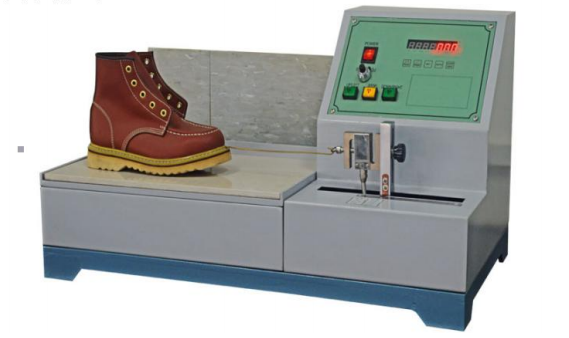G622F sole anti-slip testing machine
G622F Sole Anti-Slip Tester: Ensuring Footwear Safety Compliance
The G622F sole anti-slip testing machine evaluates the slip resistance of shoe soles on wet or oily surfaces, ensuring compliance with Chinese national standards for occupational safety footwear. By simulating hazardous walking conditions, it helps prevent workplace accidents in industries like manufacturing, hospitality, and logistics.
Applicable Standards
The tester adheres to GB/T 20991-2007, China’s standard for footwear slip resistance. Key requirements include specific test angles, contaminant types (e.g., glycerol, soap), and minimum friction coefficients.
Main Parameters
Inclination Angle: Adjustable up to 30° (simulates steep slopes).
Test Speed: 0.1–0.3 m/s (mimics walking pace).
Contaminant Volume: 0.5–1.5 mL/cm² (standardized application).
Load: 50–100 kg (simulates body weight).
| Parameter | Specs |
|---|---|
| Sole Sample Size | 100x100mm (standard cut) |
| Friction Meter | Digital readout (0.01–3.0 COF) |
| Power Supply | 220V/50Hz |

Working Principle
A motorized platform tilts gradually while a sole sample, coated with contaminant, is pulled across it. Sensors measure the angle at which slipping occurs, and software calculates the static/dynamic coefficient of friction (COF).
Test Principle
Surface Prep: Apply contaminant evenly to the sole and test platform.
Angle Adjustment: Increase inclination until slip occurs.
Data Recording: Capture COF and slip angle for analysis.
Pass/Fail Criteria: Compare results to standard thresholds (e.g., COF ≥0.5 on glycerol).
This machine is essential for manufacturers and labs to validate footwear safety, reducing slip-related injuries and ensuring compliance with Chinese regulations.

